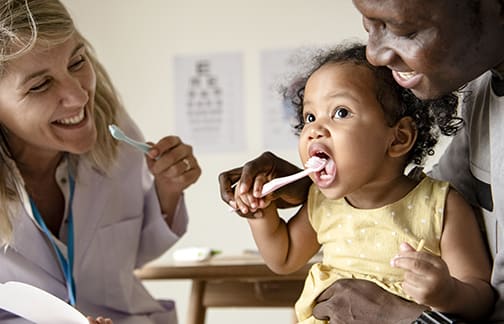At Azarko Dental Group in Edmonton, our dentists and dental team love caring for children and their developing smiles
Our dentists and team provide comprehensive dental care for children in an comforting, cheerful and engaging office environment. When children visit us for an appointment, we make it our mission to help them feel comfortable, and always go at their pace.

It is essential that a child's primary teeth are healthy, because their development sets the stage for permanent teeth.
Infants should be seen by a dentist after the first six months of age, and at least by the child's first birthday. By this time, the baby's first teeth, or primary teeth, are beginning to erupt and it is a critical time to spot any problems before they become big concerns.
At Azarko Dental Group, our services can be tailored to meet your child's oral health needs, and keep their smile healthy and happy.
First-time parents and parents of young children want to know how best to protect their children’s teeth against decay.
Here are some answers to frequently asked questions from the parents of children who visit our practice.
Looking for a dentist in Edmonton? You've come to the right place! We are open 7 Days a Week.
Request Appointment